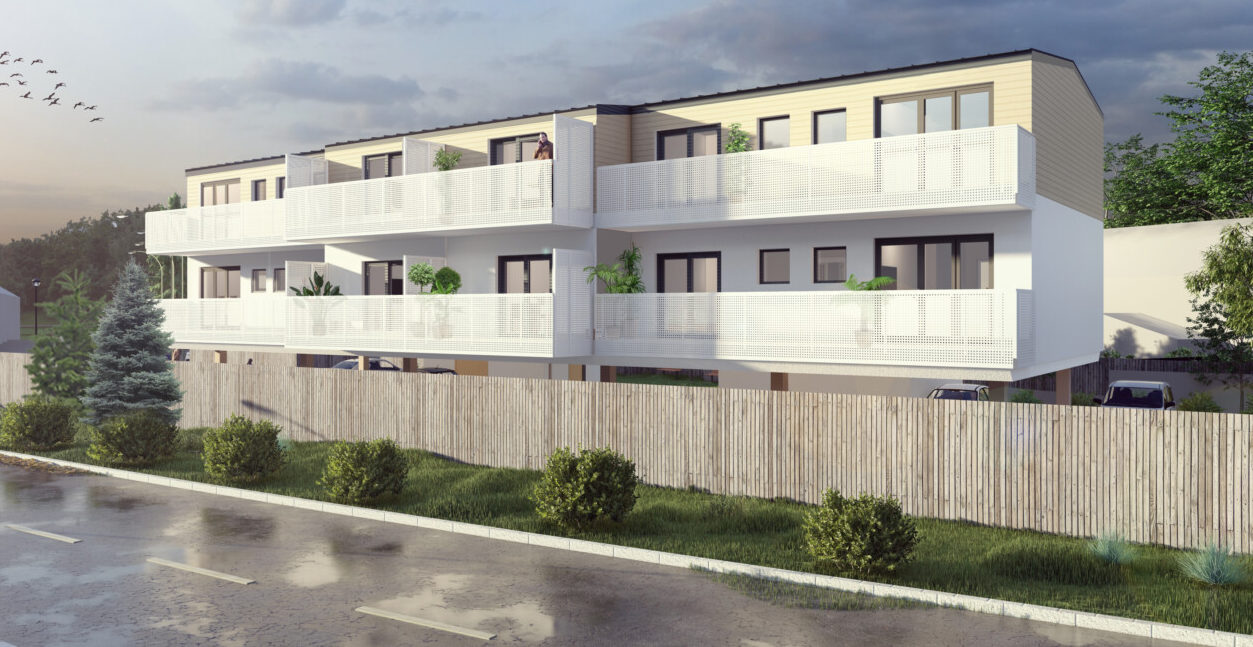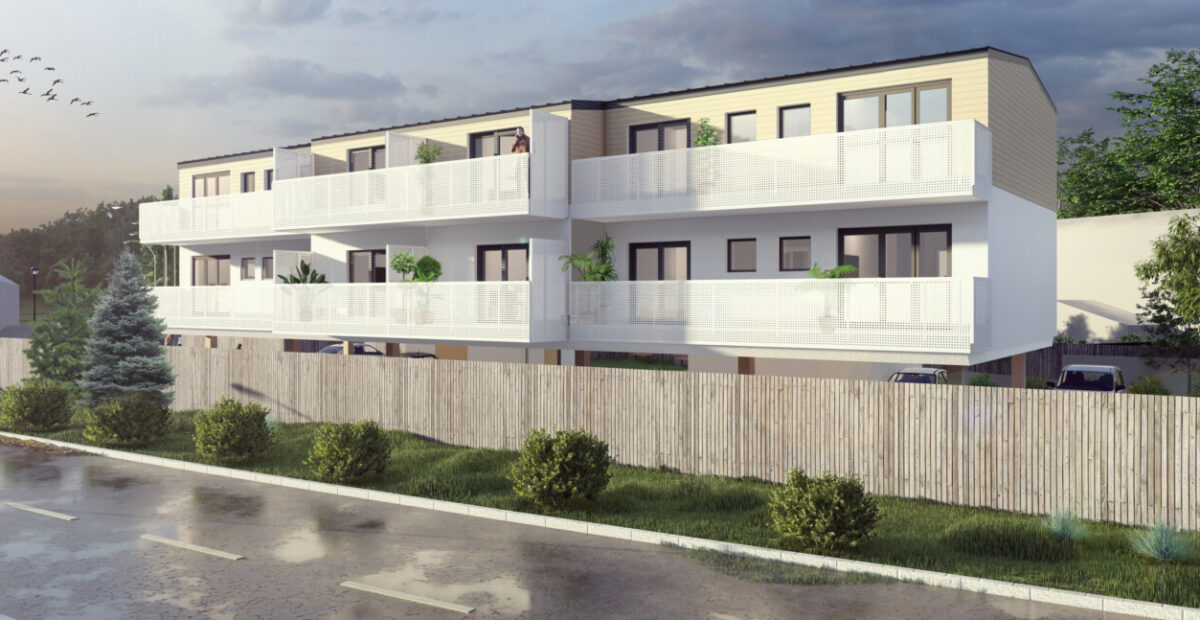Mid Devon District Council (MDDC) has been working in partnership with ZED PODS (an environmentally led modular housing developer and contractor) to design, obtain planning and build 14 high-quality, highly energy-efficient, social-rented modular homes over two sites in underutilised council-owned garage sites. Both the sites have obtained funding from the Homes England’s “Brownfield Land Release Fund “(BLRF).
These developments will be the MDDC’s first modular, carbon neutral homes embracing offsite volumetric construction methodology with an aim to support council’s most vulnerable residents to access rapidly built, good-quality affordable homes. The projects will meet the housing needs and aspirations of local people by providing a greater choice of high-quality new and affordable homes at social rent tenure and as well as helping to address the local housing need, to improve social wellbeing in a sustainable way whilst also addressing the challenges posed by climate change and rising energy costs.
MDDC has demonstrated true leadership by:
- Engagement: Embracing Modern Methods of Construction (MMC) for the first time was the biggest challenge for MDDC, as their key stakeholders, residents and council officers had pre-conceptions and apprehensions, which were tackled via an innovative engagement plan. The council took key decision makers to MMC factories and visited Zed Pods modular housing scheme “Hope Rise”. In mid-2021, they placed Zed Pods’ full-sized demo unit at Culm Valley Leisure Centre and showed it to over 400 local people, stakeholders and local press.
- Collaboration: The project team includes the maintenance team right from the design stage, demonstrating true collaboration. In addition, local school pupils and communities are involved for the mural design on gable wall (50 sq. m).
- Zero-carbon: These are exemplar zero-operational carbon schemes to help achieve MDDC’s ambition towards being carbon zero by 2030. Low carbon and sustainable housing are at the heart of this scheme, with methods in place to complement the “fabric-first” energy performance.
- Design & Build: Building on this constrained site wasn’t possible using conventional construction method. The unit massing of the projects has been designed to match the local need for unit size as identified within MDDC’s Housing Needs ‘Heat Map’ to ensure that the additional units provided help towards the highest demand. The homes will be up to 90% completed in a UK based factory.
- Building-safety: Each apartment has its own independent structure with no structural bridging elements, ensuring robust party wall construction and 120-minutes fire ratings between 2 units.
- Social Value: We are using local supply chain from design stage onwards, to boost local employment & business opportunities.
- Long-term savings: Savings will be achieved by using materials strategically to reduce maintenance, BIM to enable MDDC to embrace cheaper pro-active maintenance, and resident’s user guide to help adapt low-energy living.
Three Winning Facts:
- Mid Devon District Council (MDDC) has worked very closely with ZED PODS to bring concepts to fruition, overcoming numerous barriers for MMC-led development by winning “hearts and minds” of local community and stakeholders (around 400 people), and gaining planning approval to build 14 zero-operational carbon homes over two sites that are 100% affordable housing at social rent tenure.
- MDDC has shown pioneering leadership. The St Andrew site, which secured Home England’s Brownfield Land Release Fund, is the first site in the UK to start onsite and offsite construction activities under this funding program. The second site, Shaplands Place, which is in Flood Zone 3A, is the first in the UK to obtain approvals from Local Planning Authority and Environmental Agency, to build homes in flood zone area after demonstrating requisite mitigation and flood evacuation strategies.
- MDDC projects are pioneering, environmental and socially focused MMC development and demonstrate how precision manufacturing can be used to build innovative housing and address the “affordable” housing crisis and carbon crisis, and at the same time are economically viable to deliver under the present difficult market condition.


